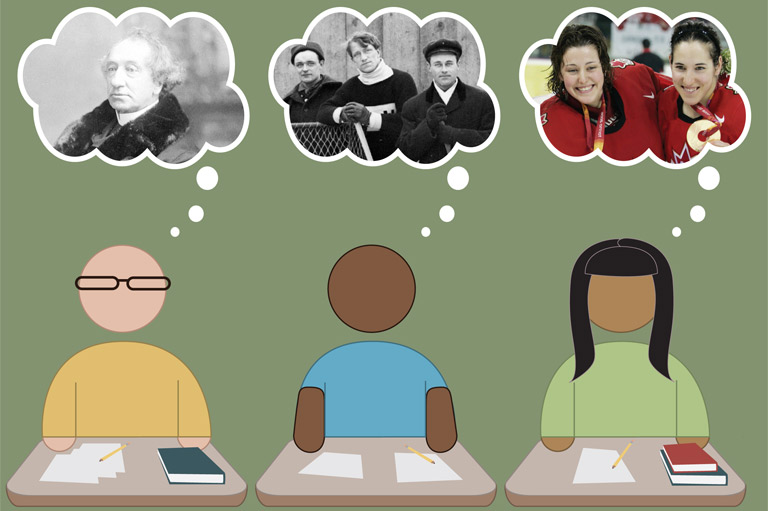Reflections of Vimy
“History is a course that is driven by self-reflection.”
I heard this statement during my time in France when I recently attended the commemoration of the Battle of Vimy Ridge, and I must say I agree. Two weeks after experiencing this 100th anniversary, I have had many moments to contemplate what I witnessed and learned about war, youth and our country’s place in the world.
On the day that we arrived in France, April 8th, our group of 40 educators toured a number of memorials to the First World War. The most striking thing for me that day was the contrast between the Commonwealth cemetery, Tyne Cot and the Langemark German cemetery in Flanders. While the former hill was covered with bright white tombstones, flowered and meticulously cared for, the latter was shrouded by tall trees and therefore dark, the tombstones were carved from grey-black stone, there was not one splash of colour, and the site was cared for in only the most perfunctory way. This contrast begged the questions of how winners and losers of war are buried, remembered and memorialized and ultimately the costs of war for both sides of a battle. How does one deal with the enemy in death? This question was answered for me by a thoughtful wreath that was placed on a German grave maker. It read, “Though you fought for another nation, we are one.” Respect for all life I think can be a powerful way to memorialize.
This wreath, although dwarfed by the enormity of tombstones, also encouraged me because it was a symbol of how the youth of today are learning and thinking about past and present events. Clearly, a high school teacher from Canada is asking tough questions of their students and encouraging them to contemplate the decisions of the past from different perspectives. The thoughtfulness of youth was also evident when I attended the Artois Expo in Arras, France the day after Vimy ceremony. The intent of the expo was to allow students who had travelled to France for the commemoration to learn more about the event through interactive displays using maps, artifacts, video, games, art, and writing. It was heartening to see students working collaboratively and thinking about their experiences at Vimy, such as “Helping others no matter your language” and “Seeing the positive rather than focusing on the negative.” Students were able to get a better understanding of Vimy by walking through a trench or an army hospital display as well as engaging in discussions about the future of peace and development in our world and contemplating the impact of conflict today.
Now that I am back in Canada, I can’t help mulling over Vimy. Although it was just one day in our nation’s past, it has much to teach us about our present place in the world. During our visit, we had an opportunity to listen to Stephen Lewis speak about the universal lesson that can be learned from Vimy. The battle taught that strong principles, team work, innovation and good leadership can make an enormous difference. Canada, although a “small” country, can continue to contribute to positive change in the world, whether it is in the realm of human rights, equality or the environment. Lewis proposed that the world is eagerly looking for hope and solutions; Canada can be a country that could model a path forward by looking at the success of our past.
Themes associated with this article
Advertisement





